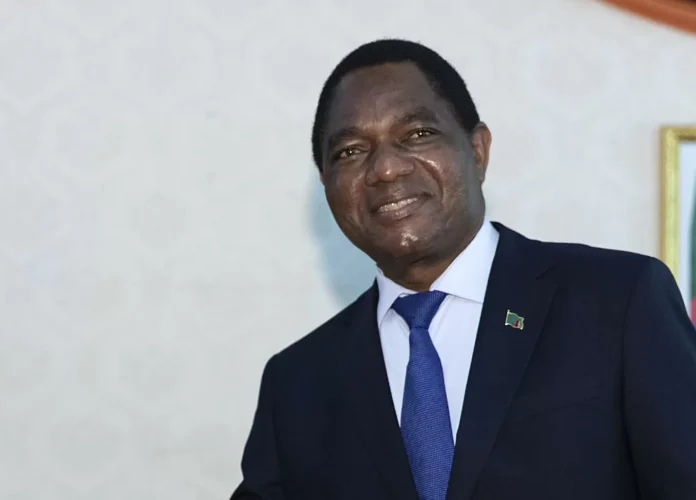Rome, 17th Feb – In recent years, Zambia has been struggling with a turbulent financial period, caused by high levels of debt and economic challenges. However, the country is determined to turn things around and is setting its sights on becoming the second-largest producer of copper in the world.
Zambia, a landlocked country in Southern Africa, has long been known as a major player in the global copper industry. However, in recent years, the country has faced numerous setbacks, including a sharp decline in copper prices and a surge in debt. As a result, the economy has been struggling, and the government has been forced to take drastic measures to stabilize the situation.
But now, as the world begins to recover from the effects of the COVID-19 pandemic, Zambia is ready to bounce back and reclaim its position as a leading copper producer. With a new government in place and a renewed focus on economic growth, the country is determined to become the second-largest producer of copper in the world.
One of the key factors driving Zambia’s ambition is its vast reserves of copper. With an estimated 20 million tonnes of copper, the country has the potential to significantly increase its production and take on the current leader, Chile, which produces around 5.6 million tonnes annually. This, combined with the government’s commitment to attracting foreign investment, makes Zambia a promising destination for mining companies looking to expand their operations.
Moreover, the country’s geographical location makes it an ideal hub for the copper trade. Located in the heart of Africa, Zambia has easy access to various markets, including China, the world’s largest consumer of copper. This strategic advantage puts Zambia in a favorable position to increase its exports and boost its economy.
In line with its goal, Zambia’s government has taken several steps to attract foreign investors and revitalize its mining sector. The country has implemented various policies, such as reducing taxes and streamlining regulations, to make it more attractive for businesses to operate in Zambia. Additionally, the government is also investing in infrastructure development, particularly in the mining areas, to improve connectivity and support the growth of the sector.
Moreover, Zambia’s new government has also shown a strong commitment to improving transparency and governance in the mining industry. By implementing stricter regulations and enforcing compliance, the government aims to create a fair and competitive environment for all stakeholders. This move has instilled confidence in investors and has already shown positive results, with several major mining companies announcing new projects in the country.
The country’s efforts have not gone unnoticed, with the International Monetary Fund (IMF) recently approving a $1.3 billion loan to support Zambia’s economic recovery and debt sustainability. The loan, which is part of the IMF’s Extended Credit Facility, is a vote of confidence in Zambia’s potential and its efforts to improve its economy.
In addition to its vast copper reserves, Zambia also has other natural resources that can contribute to its economic growth. The country is also a major producer of cobalt, which is essential for the production of electric vehicles, making it well-positioned to benefit from the global shift towards clean energy. This, coupled with the country’s potential in agriculture and tourism, makes it a diversified and promising economy.
In conclusion, despite facing challenges, Zambia is determined to overcome them and emerge as a major player in the global copper industry. With its potential reserves, strategic location, and government’s commitment to creating a conducive environment for businesses, Zambia is on track to become the second-largest producer of copper in the world. This not only benefits the country’s economy but also presents opportunities for foreign investors to be part of Zambia’s growth story. As Zambia continues to make progress towards its goal, the future looks bright for this African nation.

